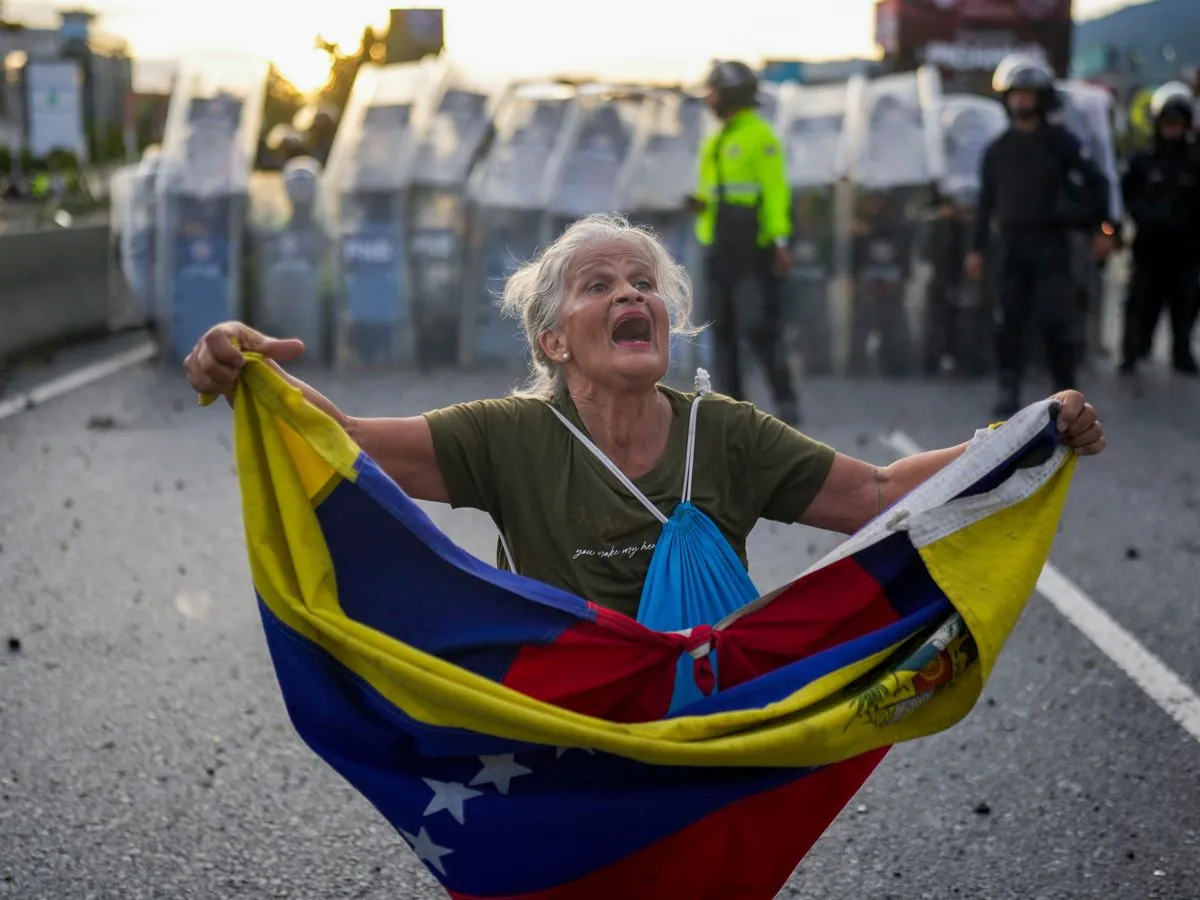Venezuela finds itself in a state of political uncertainty following the disputed presidential election held on July 28, 2024. Nicolás Maduro, the incumbent president, has claimed victory for a third term, despite widespread allegations of electoral irregularities and opposition claims of a decisive win.
The United States and other nations have expressed serious doubts about the legitimacy of Maduro's claimed victory. While the U.S. administration believes opposition candidate Eduardo González received more votes, it has refrained from officially declaring him the winner. Instead, Washington has called for the release of all official results and urged negotiations between Maduro and the opposition for a peaceful transition of power.
In response to the contested election, Maduro's government has initiated a crackdown on opposition figures and implemented media restrictions. The attorney general has launched a criminal investigation into opposition leaders, including González, who are currently in hiding. Thousands of individuals have been arrested in security sweeps, and the government has taken steps to limit communication platforms used by the opposition.
The international community, particularly a trio of Latin American nations - Mexico, Colombia, and Brazil - has been at the forefront of diplomatic efforts to resolve the crisis. These countries have called for:
- The release of complete, precinct-by-precinct voting results
- Impartial verification of the election outcome
- Respect for the will of the Venezuelan people
The U.S. administration has adopted a cautious approach, deferring to these regional leaders in hopes of building hemispheric pressure on Maduro. This strategy marks a departure from previous "maximum pressure" campaigns, which yielded limited results and fueled resentment towards U.S. intervention in the region.
"The international community is united in our call for Maduro and his representatives to release untampered, detailed tally votes. To date, there is no evidence to back up" the "claim that Maduro won" by the electoral commission."
The current situation in Venezuela is deeply rooted in the country's complex history. Once the richest nation in South America, Venezuela has experienced a dramatic economic decline since 2014, marked by hyperinflation, food shortages, and a collapsing healthcare system. The country possesses the world's largest proven oil reserves, yet its oil production has significantly decreased since 2017, exacerbating the economic crisis.
The ongoing political turmoil has led to a massive exodus, with over 7 million Venezuelans fleeing the country since 2015. This humanitarian crisis has had far-reaching implications for neighboring countries and the broader region.
As the January 2025 inauguration date for Venezuela's next president approaches, various scenarios are being considered to resolve the impasse. These range from negotiating a power-sharing agreement between Maduro and the opposition to offering Maduro a safe exit in exchange for stepping down.
The international community remains focused on finding a peaceful resolution that respects the will of the Venezuelan people and addresses the country's deep-seated economic and social challenges. The coming weeks will be crucial in determining whether diplomacy can prevail in this complex and volatile situation.
